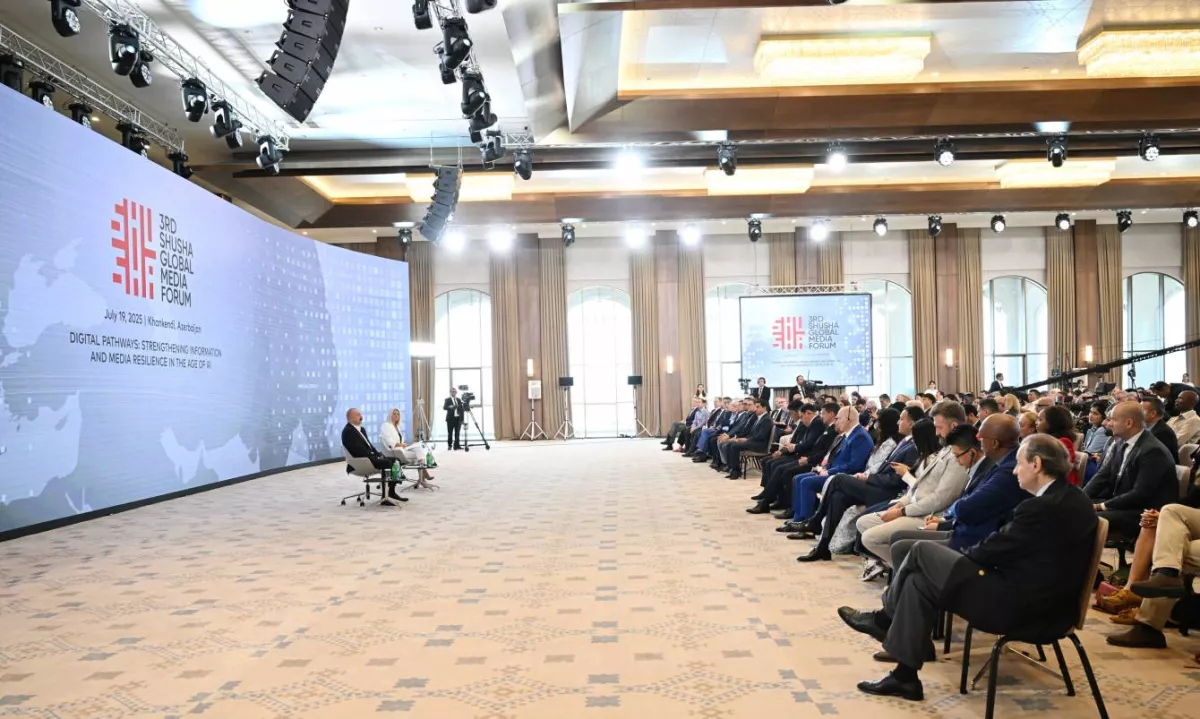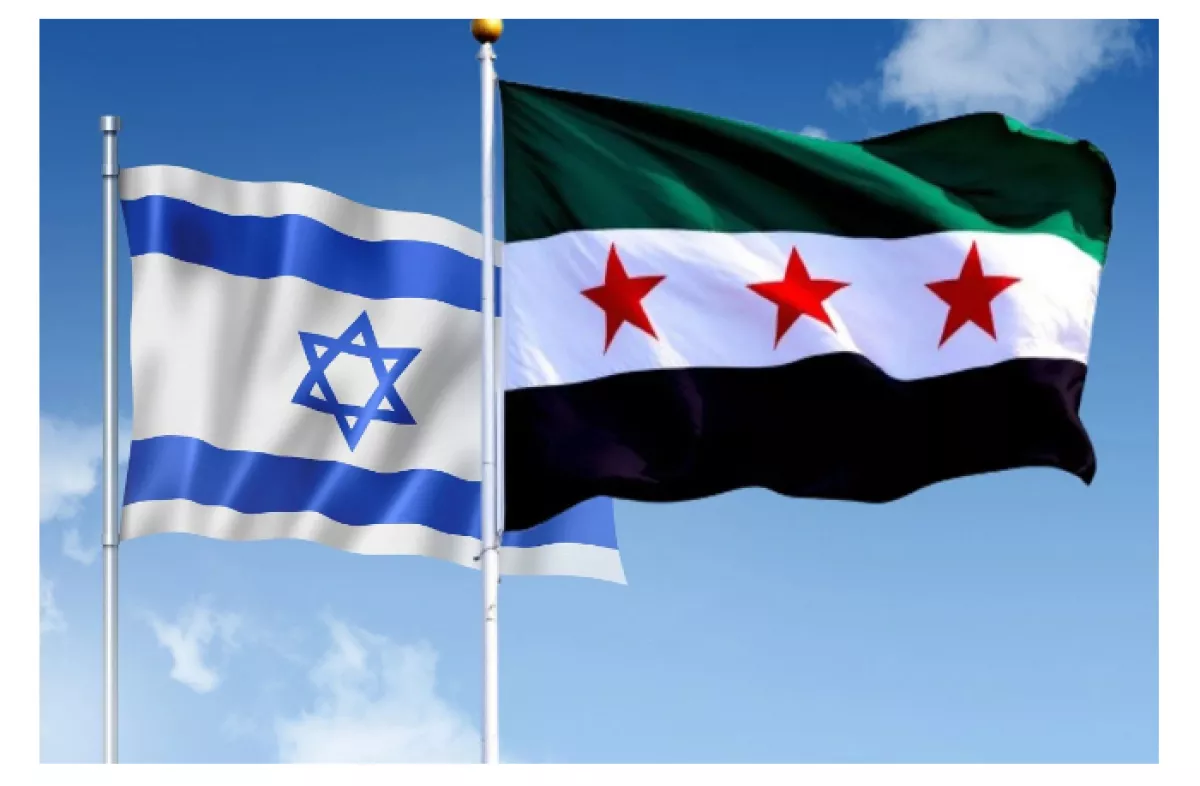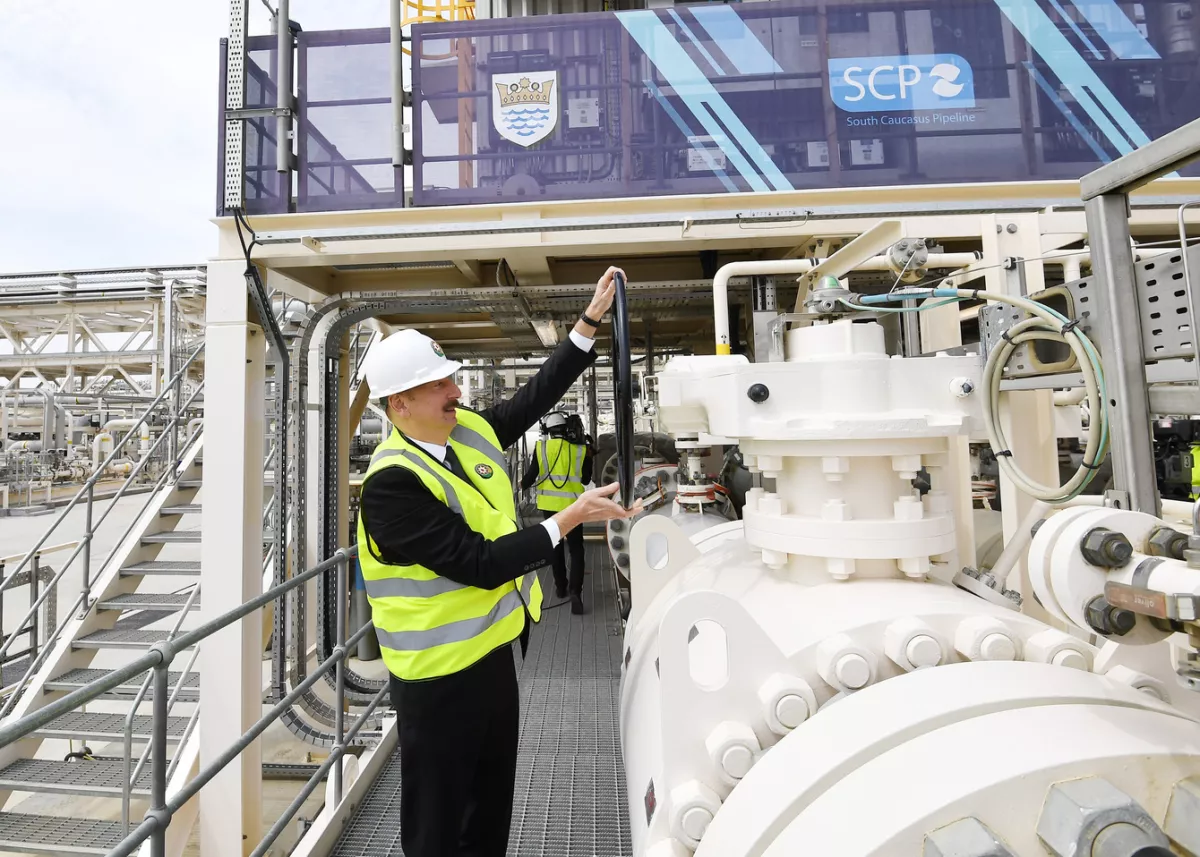Azerbaijan's "soft power" Trust built over decades
The 3rd Shusha Global Media Forum brought together over 140 international guests from 52 countries, representing 30 news agencies and 80 media organisations. As Azerbaijani President Ilham Aliyev rightly noted, the forum has already become a tradition. Its geographic reach continues to expand, and the number of participants is expected to grow with each passing year.

There is no doubt about that. It is already clear that the forum has become a platform for meetings among a wide range of journalists and experts from countries that are often in opposition to each other. This is precisely where Azerbaijan’s uniqueness lies. Today, the country is not only a player in regional politics but also a potential mediator on the global stage. Numerous examples confirm this and demonstrate that Baku's status as a responsible, pragmatic, and reliable partner has been built over decades.
One need only recall that Azerbaijan, maintaining close allied relations with brotherly Türkiye and strategic ties with Israel, has served as an important channel for informal communication and provided a “safe space” for diplomatic contacts between the two countries. This role was made possible thanks to the trust in Azerbaijan’s leadership and the country's reputation on the international stage as a state capable of balancing the interests of various powers without deviating from its own geopolitical course.

Not long ago, Azerbaijan also became involved in efforts to normalise relations between Syria and Israel. Although dialogue between the two nations remains complex, it was on Azerbaijani soil that negotiations between the sides took place. In doing so, the Azerbaijani state once again demonstrated its ability to serve as a bridge between parties holding diametrically opposed positions.
In this context, it is worth recalling that even well before the start of the conflict in Ukraine, Azerbaijan provided a platform for meetings between representatives of NATO and Russia. These were more in the realm of consultations—what is often referred to as "track two diplomacy"—but nonetheless important as elements of a broader security architecture.
At a time when many communication channels are blocked, Baku has become a sort of neutral conduit for advancing interests. History offers many examples of how a country’s geopolitical location and international image allowed it to serve as the venue for major agreements. One of the most striking is the 1943 Tehran Conference, where the leaders of the anti-Hitler coalition met. Though Iran was not a centre of decision-making, it played a key role by providing a safe and geographically convenient platform. Today, Azerbaijan plays a similar role—a state with an active foreign policy, a stable economy, and recognised international standing.
It is important to note that Azerbaijan’s image as a mediator and peacemaker did not emerge spontaneously. It is the result of a long-term, consistent policy aimed at strengthening sovereignty, developing economic potential, and fostering strong partnerships.

Energy diplomacy has played a decisive role in this process. It should not be forgotten that Azerbaijan is a key energy supplier to Europe through the Southern Gas Corridor. The reliability of deliveries, technological infrastructure, and the country’s reputation for honouring its commitments have enabled Baku to build strategic partnerships with leading EU member states. Today, amid ongoing geopolitical crises, Europe regards Azerbaijan as a dependable rear base. And this image is a form of capital—one that opens up new horizons.
While Azerbaijan is a relatively small country in terms of territory, its political dynamism, diplomatic flexibility, and ability to bring together the interests of diverse players make it the leader of the South Caucasus. Moreover, Baku’s influence increasingly extends beyond the region: its participation in global forums, initiatives within the Non-Aligned Movement, and its active engagement in the Islamic and Turkic worlds all point to the growing strength of the country’s “soft power.”
In a world that urgently needs new channels of trust and pragmatism, Baku is becoming that very bridge across which dialogue—and thus peace—can move forward. The formula for success is simple: strategic thinking, reliability, balance, and unwavering commitment to national interests. It is on this foundation that the Azerbaijani state has forged its current status—and it is this very foundation upon which its future is being built.








